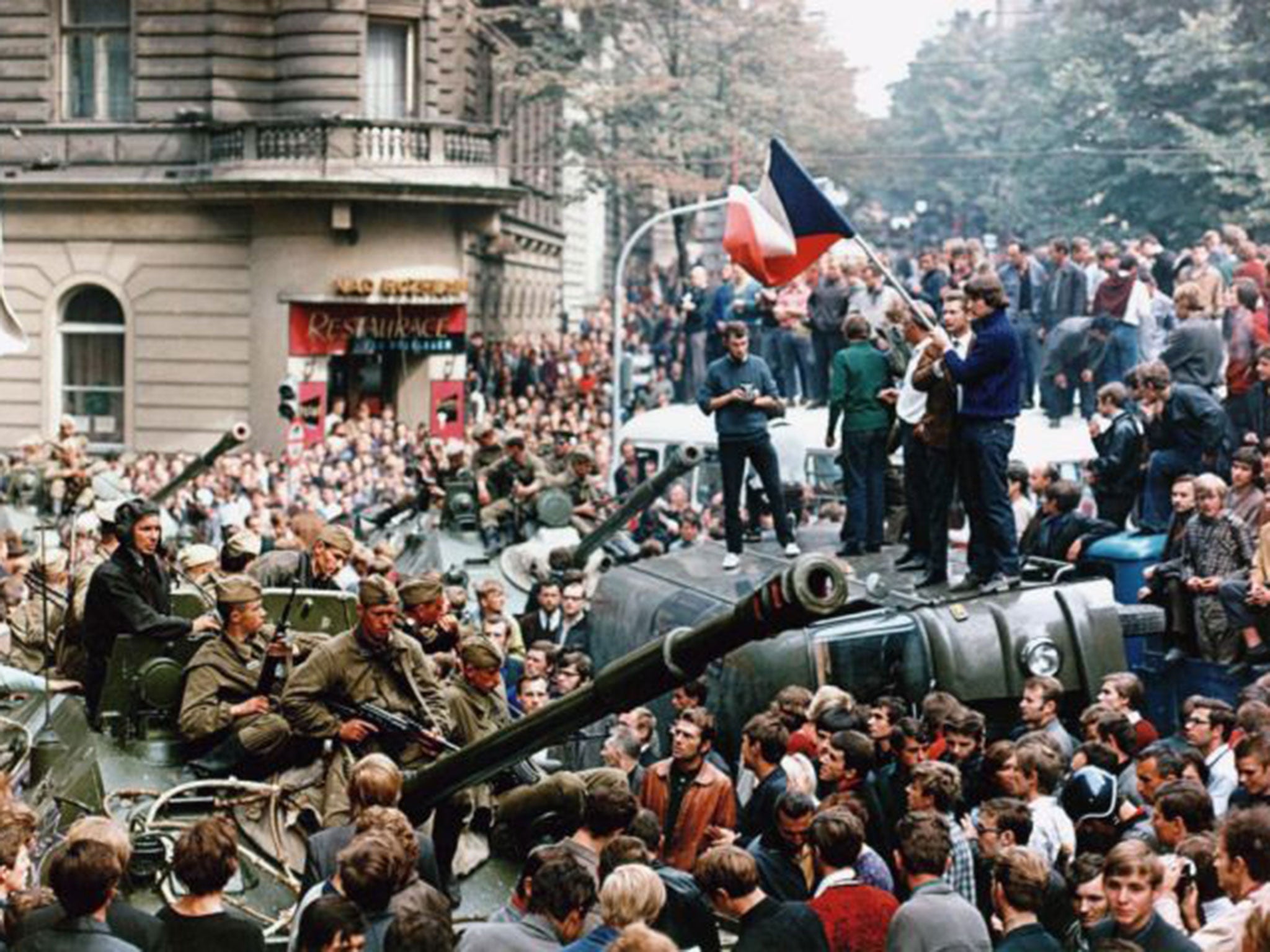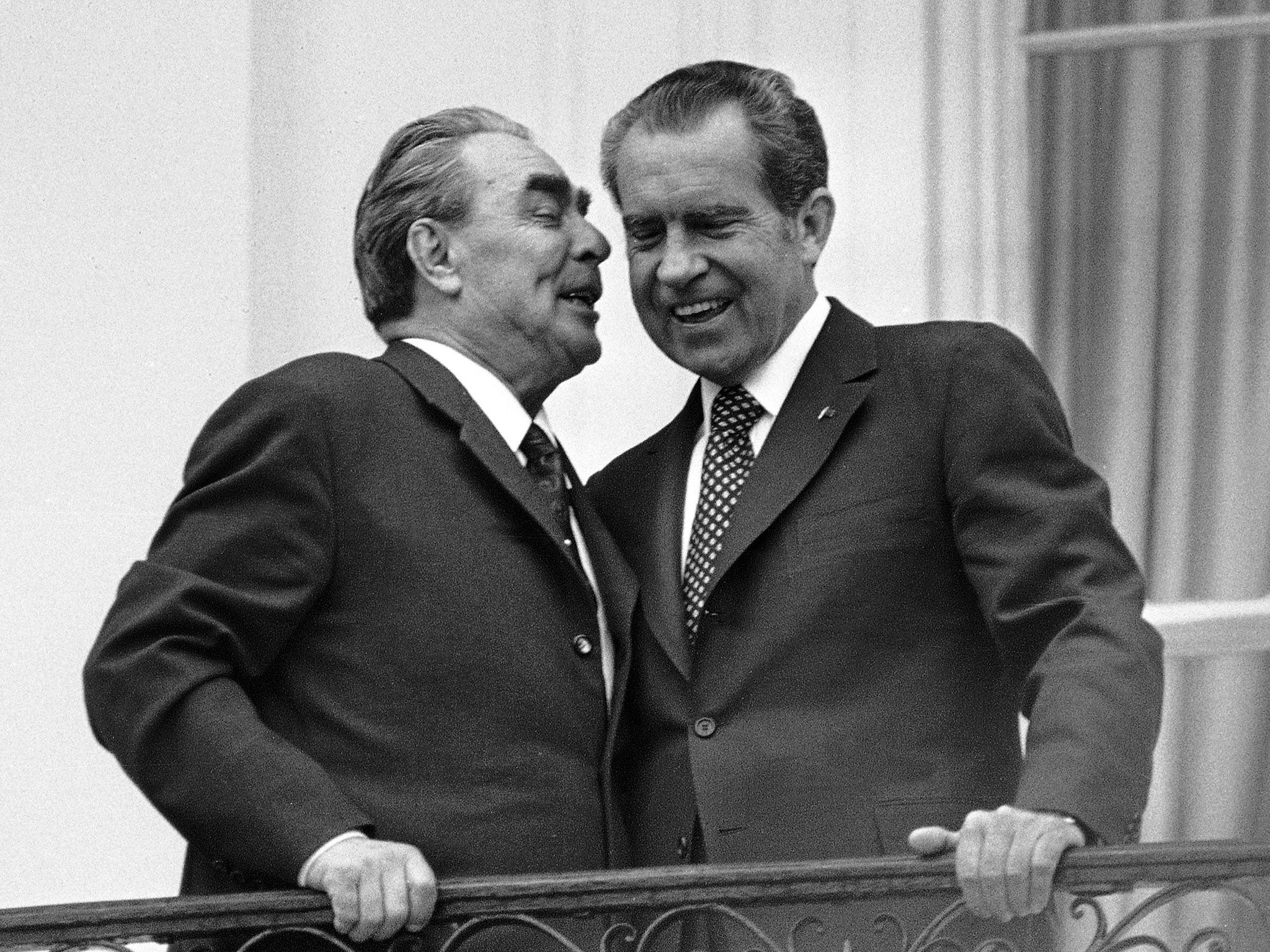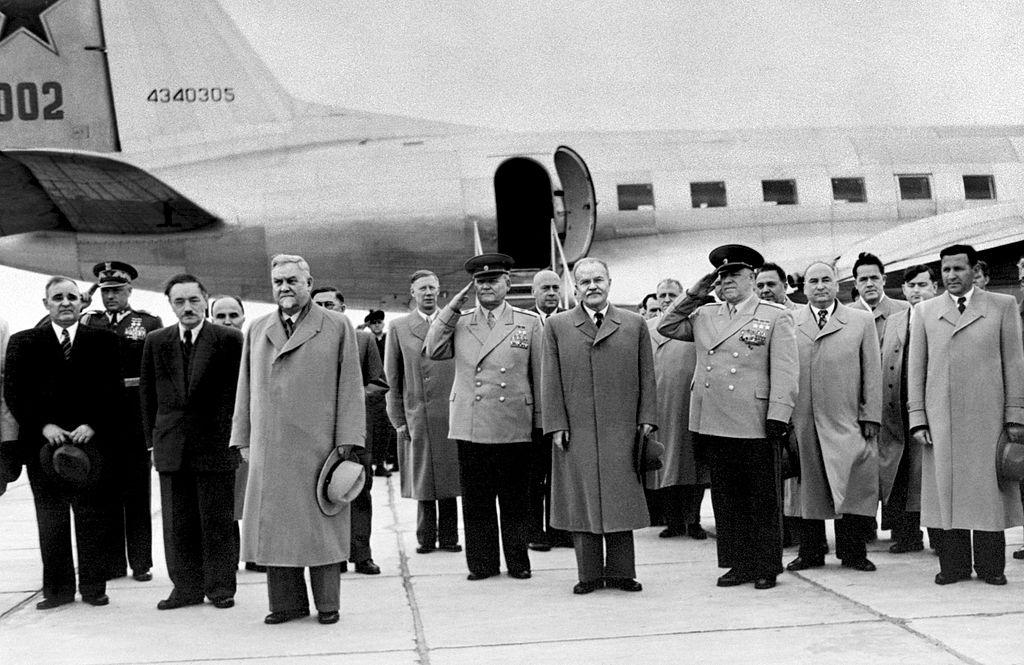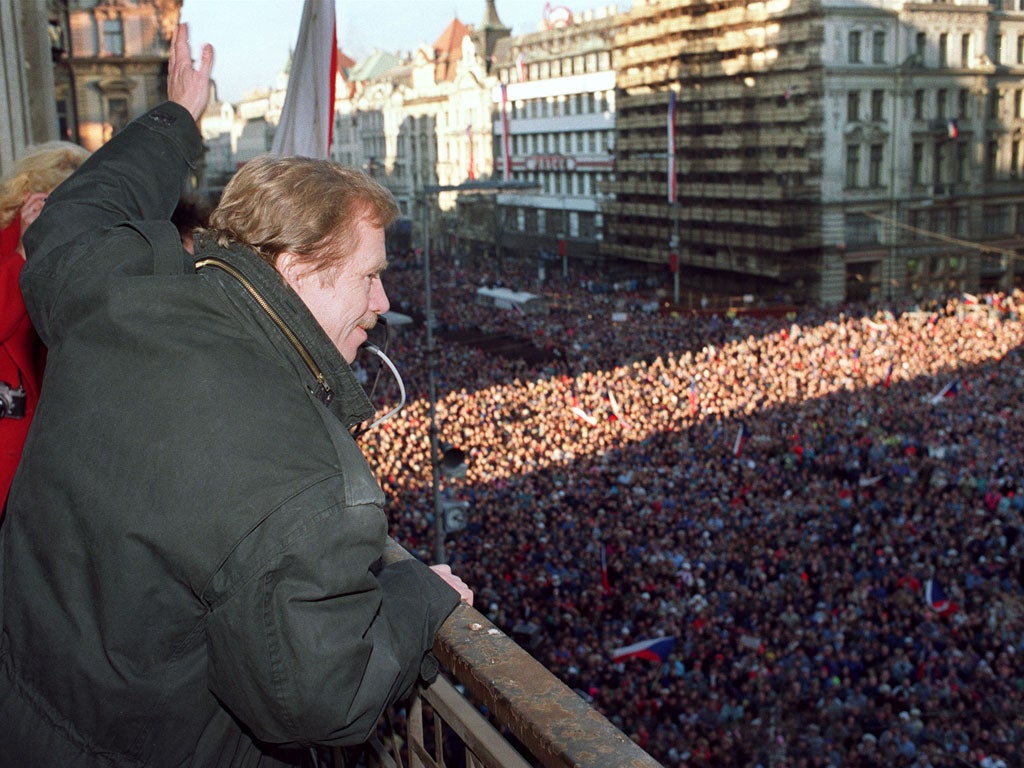Prague Spring: 50 years on what can we learn from Czechoslovakia's failed attempt to reform communism?
A programme of liberalisation was met with 2,000 Soviet tanks and 250,000 soldiers on the streets

Fifty years ago this week, on 21 August 1968, the citizens of Prague awoke to find tanks on their streets. For some it came as no surprise. Student activist Pavel Kamenicky was sleeping. “At first I thought it was the university bus trying to find the right gear,” he says. “But I realised it was way too loud. I jumped up thinking, ‘they’ve come’.”
Czechoslovakia had dominated news bulletins throughout the summer after its premier, First Secretary Alexander Dubcek, had begun reforming his communist government’s structures earlier that year. But now, what had become known as the Prague Spring, or Dubcek’s “socialism with a human face”, was lying crushed beneath the tank tracks in Wenceslas Square.
The Soviet Union feared its grip on the satellite states of eastern Europe was loosening and its patience had finally run out. Czechoslovakia and Dubcek had fallen foul of USSR leader Leonid Brezhnev’s eponymous doctrine, espoused retroactively in justification the month after Warsaw Pact troops took to Prague’s streets: “When forces that are hostile to socialism try to turn the development of some socialist country towards capitalism, it becomes not only a problem of the country concerned, but a common problem and concern of all socialist countries,” Brezhnev said
Soviet forces, alongside those of Poland, Hungary and Bulgaria, crossed the Czechoslovakian border at 11pm on the evening of 20 August. East Germany withdrew at the last minute when it was realised that, just over two decades after the end of the Second World War, the presence of German troops on Czech and Slovak soil could lead to unintended repercussions. The following morning, the foreign soldiers were in the capital, offering fraternal support to loyal comrades in Czechoslovakia.
Soviet tanks had intervened in post-war eastern Europe before. Towards the end of October in 1956, Hungarians revolted against their Marxist-Leninist government and declared a new administration, withdrawing from the Warsaw Pact and disbanding the communist-run state security apparatus. But barely two and half weeks later the western world watched aghast, but impotent, as Soviet forces entered Budapest to restore one-party rule.
Yet there had been real hope that Czechoslovakia could be different. 1968 was, of course, a year of revolution and political protest across the planet. But the Czechoslovak version was in many ways a rather gentler form of dissent. Dubcek had never set out to overthrow communism, merely to reform it.
The nation’s planned economy had been in decline throughout the 1960s. Dubcek had replaced previous first secretary, Antonín Novotný, in January 1968 and had attempted to liberalise communist party rule by tolerating political institutions and organisations not directly controlled by the party. Even multi-party government was mooted. More repressive laws were loosened, travel was made easier and freedom of expression, especially in media, accepted.

Unwittingly though, Dubcek had created either a vicious or a virtuous circle, depending on one’s political viewpoint. Reform emboldened progressives and led to demand for further liberalisation. Dissidents, especially students, but also the wider population in numerous Soviet satellite nations, began to push for similar freedoms.
Conversely, communist hardliners in Czechoslovakia and other Soviet client states feared a loss of power and urged Dubcek to pause. Brezhnev and the Soviet politburo were starting to take notice. Yet in meetings with Soviet leaders Dubcek believed he had convinced them of his loyalty to the communist cause and that his domestic reforms were not challenging the hegemony.
He was wrong: 2,000 tanks and a 250,000-strong Soviet-led force of men invaded on Brezhnev’s orders; 137 Czechoslovak civilians were killed resisting; and, pleading with his citizens not to fight back, Dubcek was flown to Moscow.
Some citizens used the power of argument to voice their opposition, engaging troops in discussion to make their point – until photographs were used in Soviet propaganda to suggest the locals were making friends with the invaders. Dubcek returned as little more than a puppet of the Soviet regime and was replaced early in 1969. Half a million of his supporters were expelled from the Communist Party.

The members of Nato, especially the United States – already involved in conflict in Vietnam and aiming to broker a disarmament agreement with the Soviet Union – condemned the invasion but had no intention of intervening. In the aftermath, 300,000 Czechoslovaks, many highly qualified, emigrated to the west, although the authorities soon clamped down on their ability to leave.
The period between 1969 and 1971 is known in Czechoslovak history as the era of “normalisation”. The country returned to the Soviet fold; opposition both within and without the country faded; and the Communist Party returned to the hardline position it had held before the onset of the Prague Spring.
So, 50 years later, what does the anniversary offer today’s Europeans still struggling with political upheaval and, certainly in the east of the continent, getting to grips with increasingly nationalistic, repressive governments? Apart from the sense of betrayal felt by Czechs and Slovaks, both towards their own government and their supposed allies, and the reminder that totalitarianism brooks no dissent, are there lessons to be learned from the Prague Spring; and what became of Dubcek, its architect? Unsurprisingly the legacy is complex – as legacies are wont to be.
Perhaps the key to understanding Czechoslovakia in 1968 is that, unlike similar uprisings against the establishment, both in communist Europe but also elsewhere around the world – witness the Arab Spring of 2010 and 2011 – the Prague Spring was not a movement of only liberals, students (among other young people) and political intellectuals fighting a conservative establishment. It had wider cross-generational support drawing on the strong traditions of democracy that had developed in Czechoslovakia between the two world wars, after its formation in 1918.
Czech-born writer Milan Kundera, author of the Unbearable Lightness of Being, who lived in exile in France from 1975, argued that it was a movement falling back on the “best traditions” of Czechoslovakia’s brief history: a “higher quality of democracy not based on the ills associated with capitalism”. By contrast, the later revolutions that would finally overthrow communism in Europe at the end of the 1980s were driven as much by the “victory” of Reaganism, free-market economics and monetarism as they were by the right to vote freely and express opinions openly.
It has become fashionable, with hindsight, to blame the suppression of the Prague Spring on “communism”. But let it not be forgotten that it was fervent communists who were carrying out Czechoslovakia’s reforms. Whether the Prague Spring was a “purer” revolution than those that followed is probably an argument for political ideologues alone, but a glance across the border towards Viktor Orban’s Hungary shows that the spoils of the “freedom” won in 1989 might not always manifest themselves with good intent.
Two decades after Dubcek’s attempt to reform communism from within, the then premier of the Soviet Union, Mikhail Gorbachev, issued an apology on behalf of all Warsaw Pact nations, stating that the invasion of Czechoslovakia was a mistake, and that the USSR should never have interfered in the internal affairs of another sovereign state. (It should be noted that both Romania and Albania had refused to participate in the 1968 intervention; and Albania ultimately withdrew from the Warsaw Pact in the aftermath.)
It was the culmination of a number of apologies from Warsaw Pact nations throughout 1989 and it seems reasonable to argue that there was a direct link between these acknowledgements and the overthrow of communist governments in East Germany, Poland, Romania and, most poignantly, Czechoslovakia, that same year. Protesters realised that their actions would no longer lead to Red Army interference, and the Soviet bloc of eastern European nations had replaced their communist rulers within months of one another.

Perhaps 1968 showed us, if 1956 had not already, that the post-war façade of communist interdependence, internationalism and fraternal allegiance was broken, if indeed it had ever been more than a charade at all. The alliance was built on flimsy foundations and maintained by suppression. Czech historical novelist and writer Ivan Klíma has said that – for good or ill – the most important legacy of the Prague Spring was the delayed but ultimate destruction of the international communist movement.
But warnings must still be heeded. In a world where a nationalistically invigorated Russia under Vladimir Putin increasingly looks beyond its borders for a bulwark against Nato and the EU, the demise of communism and the Warsaw Pact does not mean a concurrent diminishing of militarism: the annexation of Crimea by Russia has shown us that very clearly. And – even putting aside the Brexit debate – illiberal governments in Slovakia, Poland and Hungary threaten to overturn the European Union’s free-market liberal consensus. The threat, while changed in ideology, still lurks.
And what of Dubcek? After he was ousted as first secretary he worked for the forestry service near Bratislava, in his native Slovakia. And after the final overthrow of communist rule in Czechoslovakia’s Velvet Revolution of 1989 he briefly returned to political prominence as chairman of the Czechoslovak Federal Assembly, and later as leader of the Slovak Social Democrats.
He divides those of his compatriots who thought he was a decent man wronged and those who think he was naïve.
Pavel Kamenicky, now 70, says: “We were idealistic. But Dubcek should have realised what was going to happen. Did he really think Brezhnev would shrug and say ‘carry on’?” On the other hand, Dubcek’s son Pavol has defended his father’s position, once saying: “I don’t know if people really understand what it meant to have your fate in Brezhnev’s hands.”
For right or wrong, however, Dubcek had in truth become more or less a political irrelevance by the time of the Velvet Revolution. Václav Havel, the poet and statesman who played a prominent role in the events of 1989 and became Czechoslovakia’s first post-Soviet era president, said: “Dubcek is a symbol of our nice memories, but nobody thinks he can influence the situation now.” Dubcek himself rarely spoke of 1968.
Although a Slovak, Dubcek was opposed to the 1993 split between the Czech Republic and Slovakia and maintained his belief in the idea of a single, united nation. He was killed in a car crash in 1992, declared in an official investigation to be an accident. Conspiracy theories abound and even today 50 per cent of those Slovaks who know of him believe his death was almost certainly not an accident.
The crushing of the Prague Spring continues to echo down the ages, its eventual legacy yet to be determined.
Join our commenting forum
Join thought-provoking conversations, follow other Independent readers and see their replies
Comments
Bookmark popover
Removed from bookmarks